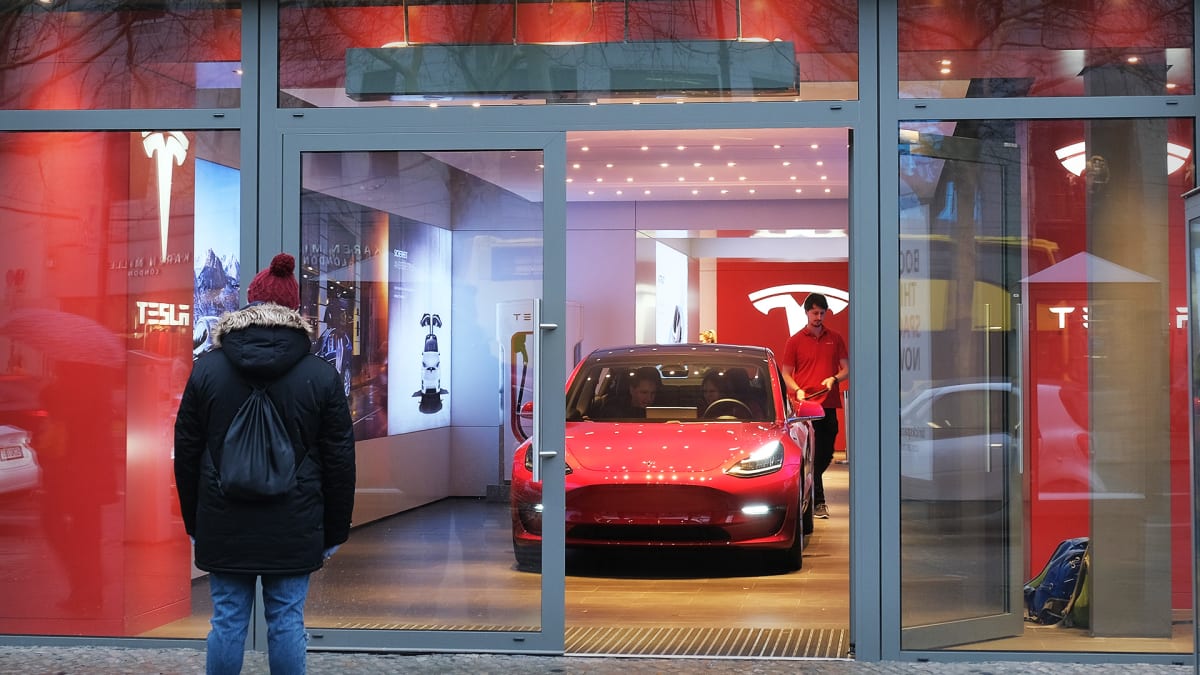
The last two weeks of 2022 are likely to be endless for Tesla investors and fans.
The electric vehicle maker is having one of its toughest years since it started assembling the Roadsters in 2008.
On the stock market it's a rout. Tesla (TSLA) had ended the year 2021 with a stock market capitalization above the trillion dollars mark. The meteoric rise of Elon Musk's group made it one of the favorites to challenge Apple's title of the world's largest company in terms of market capitalization.
The Model Y maker had the wind at its back.
But almost a year later, the market value has completely melted. At the time of writing, Tesla's market cap fell below $500 billion to $497 billion.
This is the first time since November 2020 that the stock market valuation of the group based in Austin, Texas, has been below this symbolic bar. Tesla stock has fallen more than 55% this year. And the way things are going, the slide should continue.
Musk No Longer World's Richest Man
This stock market rout created something unthinkable in the Tesla community: criticism of Elon Musk, the CEO and Techno King. It has also caused the serial entrepreneur to lose his title as the richest man in the world. He is now behind the French businessman Bernard Arnault, CEO of the luxury group LVMH (LVMUY) .
Musk owns 14.11% of Tesla's outstanding shares, according to FactSet.
"Poor tesla can’t get a real bid as its ceo is lost on a blue bird to hell," lamented Tesla investor Ross Gerber on Twitter on December 13.
The company also seems to have a demand problem. During the third quarter, the automaker had warned that its production during this period had exceeded deliveries by around 22,000 units. Chief Financial Officer Zachary Kirkhorn had warned that the same was likely to happen in the fourth quarter as well.
"On the delivery side, we do expect to be just under 50% growth due to an increase in the cars in transit at the end of the year, as noted, just above," Kirkhorn told analysts during the third quarter earnings' call. "This means that, again, you should expect a gap between production and deliveries in Q4, and those cars in transit will be delivered shortly to their customers upon arrival to their destination in Q1."
These declarations were followed by the reduction of the prices of Tesla cars in China of the order of 5% to 9%. Other initiatives followed, such as advertising on TV in China.
Other initiatives followed, such as reintroducing a referral program.
Bloomberg News recently reported that Tesla has decided to cut production by 20% in its Shanghai factory in China.
Promotion
In the United States, the automotive group recently launched a promotion offering $3,750 to consumers buying a new Model 3 or a new Model Y by December 31.
Officially this rebate is supposed to allow consumers buying Tesla vehicles today to benefit from the tax credit contained in the Inflation Reduction Act (IRA) which will only be effective from January 2023 for buyers of Tesla vehicles.
"Take delivery of a new Model 3 or Model Y in December 2022 for a $3,750 credit," the company says without further details.
The problem is that it is very rare to see Tesla make promotions, as the reputation of the carmaker has so far managed to make a difference to consumers. Besides demand, Tesla also seems to be struggling to develop longer-lasting batteries at its Austin plant.
A sign that things are not going the way Musk wants, the billionaire has brought Tom Zhu, the boss of Tesla in China to run the Tesla factory in Austin, which manufactures the Model Y SUV/crossover, and soon the long-awaited Cybertruck, Tesla's futuristic pickup truck whose production should start in mid-2023.
Zhu came with his team of engineers to oversee the increase in production capacity of the gigafactory in Texas. The plant has an annual vehicle capacity of 250,000 Model Y.
One of his great feats happened in 2019: that year, Tesla delivered its first Model 3 sedan made in China, a year after Tesla signed an investment agreement with the local government in Shanghai for a gigafactory.
One of Tesla's big problems, however, remains Musk. Since he decided to acquire Twitter, the billionaire has left Tesla to focus on the social network. Once the Twitter acquisition was complete, Musk alienated Tesla's natural customer base -- progressive Democrats -- by attacking them daily on the platform in the name of free speech.
"Tesla’s brand has become more polarizing,” Goldman Sachs analyst Mark Delaney wrote in a note to clients on December 14.
Delaney who cuts his Tesla stock-price target said the company must shift consumers' attention back to what Tesla does and away from Musk's tweets.
"Tesla’s brand has significant value related to the company’s leadership position in clean energy and advanced technology," the analyst said.
In the meantime, if Tesla remains the undisputed leader in the EV market, the group no longer seems to have the momentum. Rivals like Ford (F) and China's BYD are taking the opportunity to catch up.







